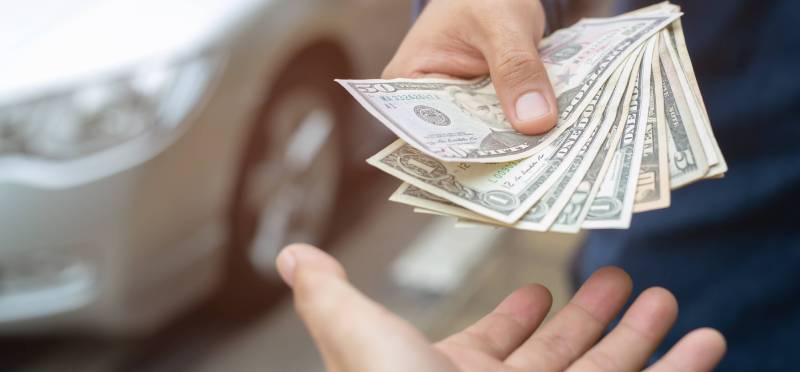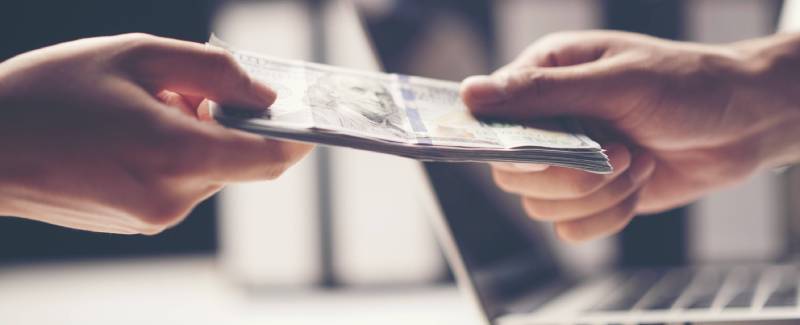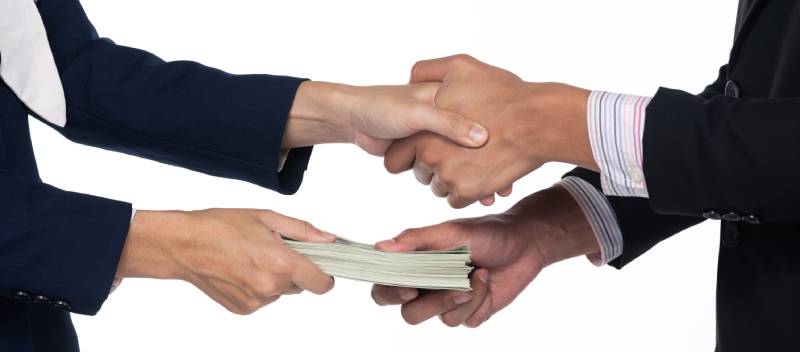Paying debt is a tale as old as time. Being that old, it has found different ways in which we can refer to it. There were many popular phrases to express the act of paying, especially this one.
“To Pony Up” means to pay something to someone. You pay money that you owe via a previous settlement, paying for something. “To pony up” also means putting something up or showing up. It means settling a debt.
It is used in monetary settings and betting games. People will use it to ask you for your money during a card or chance game.
It is also considered to be a variation of the phrase “post the pony.”
The phrase mainly refers to a monetary transaction that occurs willingly. “To pony up” can also refer to standing up or showing up at a confrontation or an event. In this regard, its use together with the phrase “shut up.”
“Pony up or shut up” basically means for a person to act or stay put in any given situation.
What Is The Origin Of The Saying?

The origin is unknown. Its use dates back to the 1700s. There are many stories concerning the first appearance of the phrase.
The use of the word pony as a synonym of money dates back to the 18th century. Still, there are no records as to why people started using the word in a monetary reference.
While its use is recognized in America, it is said that the phrase is made more famous by the British. The word pony is British slang that means £25.
The use of the word as a monetary equivalent comes from India, where old Indian banknotes had different images. The 25 had a Pony, and the 500 had a Monkey. British use these two words as an equivalent of £25 and £500.
So, the phrase was coined in the United States of America, some people say. Yet, in a book from the 19th century written by Thomas Darlington, you can find Pony’s description to pay. To “pony out” = “Stump out”. Stump Out being a slang term that also refers to paying someone money that is owed.
In the same century, there’s also a record in The Rural Magazine and Farmer’s Monthly Museum. The quote in the book reads like this:
“The afternoon, before the evening, the favored gentlemen are walking rapidly into the merchant-tailor shops and very slowly out unless they ponied up the Spanish.”
Spanish was another slang that meant money. It was a term much older, and it was short for Spanish money or Spanish dollars. This was the most used currency in the New World and other places.
The phrasing is dated in the United States earlier than the first recorded use in the UK. But we do not know how long the British have been using it before Darlington even wrote about it.
By that time, there were no significant migrations from the United States of America to the United Kingdom. People migrated to America, not the other way around.
So it is safe to say that “To Pony Up” was of British origins and popularized in the United States.
It is The Oxford English Dictionary that dates the word “Pony” in the sense of money to the 18th century but does not explain how or show any proof.
There’s also another origin story that comes from Latin words.
Legem Pone is the first word of Psalm 119. This saying is linked to the 25th of March in an era where the payment was made four times a year and March was the first payment of the year.
That first line of the Psalm in full is “Legem pone mihi Domine viam iustificationum tuarum.” Which translates to “Teach me, O Lord, the way of thy statutes.”
It was a prayer said in the mornings of the 25th of each month. So it became associated with the day of payment and settlement of debts.
Years later, this word became synonymous with payment and was shortened as slang to Pone. The word existed many years before the use of Pony as an equivalent to money.
There are similarities between the words and their pronunciation.
People made the connection between them and their monetary meaning. So the origin of the word Pony is believed to come from that sample of Psalm 119.
When Do I Use This While Writing?
We now know that “To pony up” means paying money to someone that you owe. So the phrase can be used when one is talking about maybe paying rent, buying an accessory, or paying after losing a bet.
It can also be said to a person who owes you, and you need them to pay at that particular moment.
Examples
I thought I left with enough cash to buy all the things I needed, and I had to pony up more with what I had on my credit card.
Tomorrow you’ll be leaving the city, but you have to remember that it is the end of the month and you need to pony up before you go. Living here ain’t free.
I’ve been paying for the drinks for the past couple of weeks. It is time for you to pony up since you’ve got that fancy new job.
Does Pony Mean Anything Else, Like Another Slang Or A Metaphor?

Besides the slang for money in the UK that is probably the most known origin for the phrase “To Pony Up,” the word has been used to describe something smaller than usual.
A Pony is a petite horse.
So Pony could mean a small beer glass or a small one-ounce glass. A small amount of alcohol.
Because of its smaller size, there was a theory that pocket change or a small amount of money was called Pony because of it. The kind of money that poor people often handle.
In the 1950s, Pony was also used to express when something was nonsense. The longer phrase is “pony and trap,” which could also mean “of poor quality”—trap referencing a meaner word that rhymes with it.
Just like the pony meaning £25, this was also Cockney slang. Cockney being a person from London, England, with the prevalent use of the cockney dialect. Most notably, the Cockney Rhyming Slang.
The Cockney Rhyming Slang is slang that uses words or phrases that rhyme together. Mostly nonsense for outsiders, rhyming slang is a linguistic form that is most used by very outgoing communities.
By 1827, it was also considered a small crib sheet or a petite studying aid in America.
In Indiana, a 2.5-gallon bottle of milk or water with a spigot is also known as a Pony.
The number 25 seems to be very much associated with the word Pony.
Are There Any Other Phrases Or Words That Could Express The Same As “To Pony Up”?
Pay up. You can use the word Pay. That is essentially what the idiom means. There are also words like settle, liquidate, or meet.
Examples
It’s been over two months, and you haven’t paid up. I won’t be serving you anymore.
I preordered that album months ago, and I completely forgot that I needed to pay for it this week.
Luke had to leave early from work because today is the last day he can settle what he owes to his landlord.
Today is the day that I finally liquidate my student loans.
Other English Idioms
What Would Be The Opposite Of The Idiom “To Pony Up”?
This would be the action of not paying anything at all. As antonyms, we can find words like repudiate.
The word mainly means: refuse to accept. But another definition says: to refuse to pay.
Stiff, a word with a wide range of definitions, can also be used. Stiff is to rob by the use of trickery and threats.
Not wanting to pay something you owe is stealing.
Examples
I think the company has been overcharging me, so I’m repudiating the debt until I can be assured that they are fair.
Cristina took that loan from one of her coworkers last month, and she’s now planning to stiff him.
Conclusion
The phrase “To Pony Up” is rarely used nowadays. We’ve been using more simple words to refer to payment. The idiom does not make much sense outside of London, England.
There is no other place on earth that a pony is equivalent to money. The Indian origin of the image of the pony on the number 25 banknote, adopted by the British for its twenty-five pounds, makes it relatable for them to use the phrasing.
Maybe the tone in which one uses the phrase could indicate an action closer to “manning up.”
But in America, it could be easily recognized as a sexual reference thanks to a hit song in the mid-’90s by the artists Ginuwine.
Shawn Manaher is the founder and CEO of The Content Authority. He’s one part content manager, one part writing ninja organizer, and two parts leader of top content creators. You don’t even want to know what he calls pancakes.


